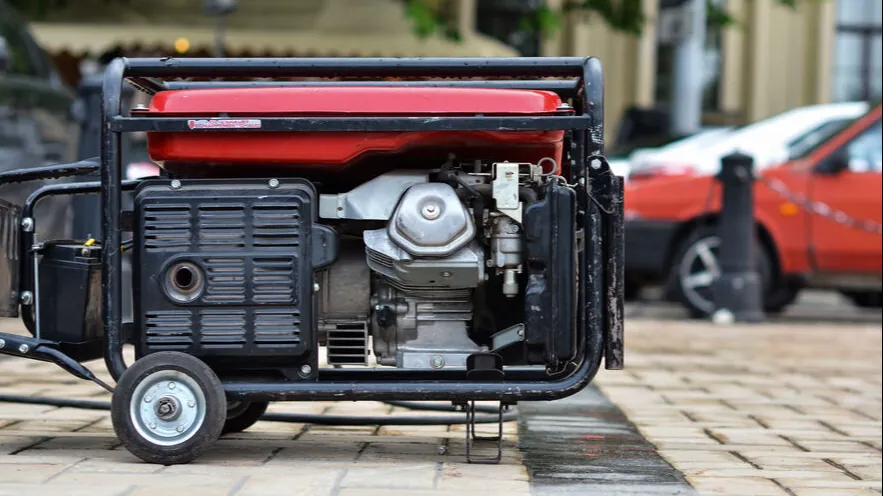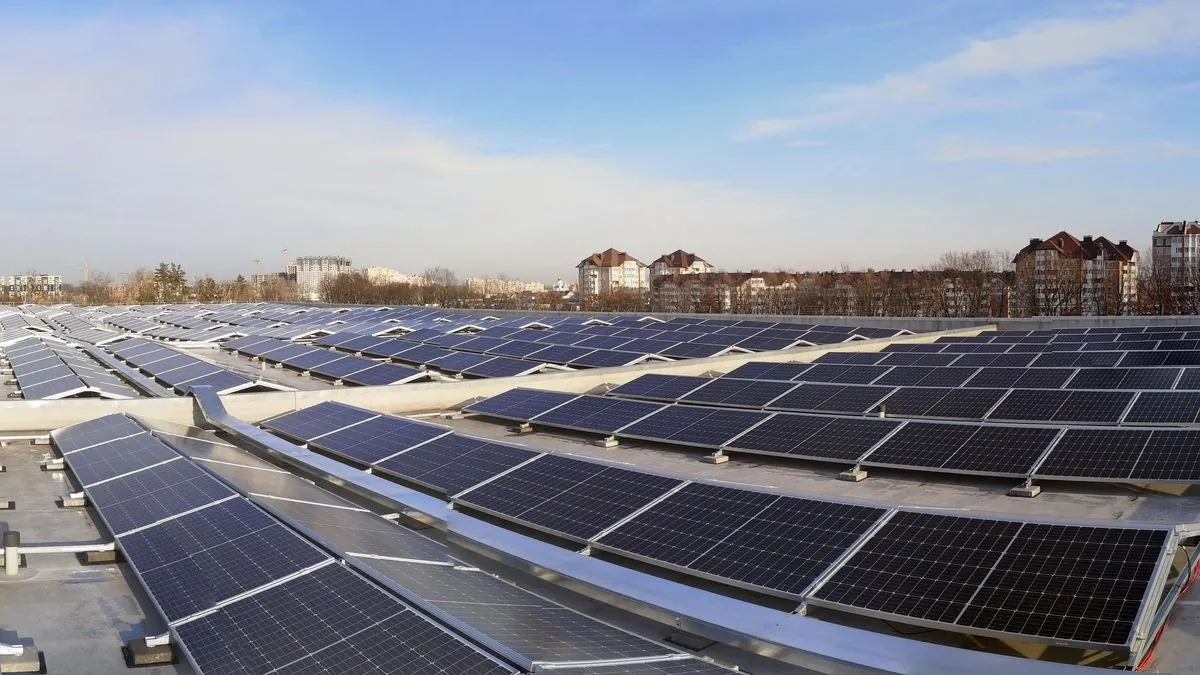How to provide an apartment building with autonomous power supply during power outages: which system to choose, what to look for
Kyiv • UNN
The article considers autonomous power supply systems for apartment buildings: generators, batteries, and solar stations. The choice depends on the needs of the building and the financial capabilities of the residents.

The choice of an autonomous power supply system for an apartment building depends on the set of common house needs it must meet and the financial capacity of its residents. Each of the systems has its advantages and disadvantages, UNN writes.
Last winter was relatively calm for the Ukrainian power system. However, in the spring, we all remembered the blackouts of late 2022 - the enemy resumed massive attacks on energy facilities, which led to regular and prolonged blackouts across the country. This has once again raised the issue of energy autonomy not only for critical infrastructure facilities and institutions, but also for the homes of ordinary citizens. This is especially true for residents of apartment buildings.
Some people seriously advise these people to look for housing in the countryside for the winter, where a stove and a supply of firewood will provide heat, and a small generator will provide light.
However, despite the uncertain prospects for the coming winter, we should not overstate the case. In fact, in this case, it all depends on the self-organization of people in their desire to maintain at least minimal comfort during power outages.
At the same time, there is no universal recipe when choosing a system that will provide autonomous power supply to your home.
According to experts, it all depends on what systems residents think should be in place during power outages and their financial capacity.
"To begin with, we need to determine which systems should continue to operate even in the event of prolonged power outages. The first is the alluvial group, which provides water and heat supply above the fifth floor. Buildings are now being constructed with 16 floors and above, so the technical specifications must take into account the operation of elevators. You can hardly go up to the 25th floor without an elevator.
It is also necessary to provide lighting in common areas and the operation of magnetic locks on the doors to the entrances.
This is a basic set of in-house systems that should work smoothly," said Oleh Popenko, head of the Union of Consumers of Utilities, in an exclusive commentary to UNN.
Accordingly, you can already choose a system that will provide your home with electricity when it is not available.
"There are several options to meet these four needs with electricity. In particular, we can install a charging station with batteries that will supply electricity by taking it from the grid when there is light, and when there is no light, it will supply electricity and everything will work.
The second option, and, in my opinion, the optimal one, is storages (electricity storage facilities - ed.) together with small generators. A storage facility may not always have time to charge from the grid. There may also be a situation when it is not possible to refuel the generator. So, in the event of a power outage, they will complement each other.
For some, it will be optimal to install a large, powerful generator, the cost of which can be one to two million hryvnias. Such a generator can easily ensure the operation of elevators, a pumping group, and so on.
At the same time, it should be borne in mind that you need to ensure the operation of the generator - it is diesel or gasoline, maintenance. On the one hand, this is a lot of money that you will have to spend every month, but on the other hand, if there are 150-200 apartments in a building, it is not so expensive if you count per apartment," Popenko summarized.

The number of storeys of a building and the number of apartments in it directly affect the cost of an autonomous energy supply system.
In particular, as Anton Bobrov, the head of one of the condominiums in Brovary, told , their building has entrances from 17 to 20 floors and 400 apartments, so they chose to buy an electric generator for 320 thousand hryvnias.
When we bought the generator last year, it only powered the water pumps and heating pumps. This year, we invested some more money and now there is one elevator in each section. The generator provides lighting for all the corridors, and the concierge areas are also powered
Smaller buildings have the option of buying cheaper generators with less power. In the same Brovary , a ten-story building with 204 apartments at the beginning of the blackout at the end of 2022 cost 90 thousand hryvnias to buy a generator.
"We have our own boiler room in our house, and to keep people from freezing, we quickly purchased a generator for UAH 90,000 from our reserve fund. We submitted documents to the city council, and we were compensated UAH 50 thousand. This year we bought another generator. It's cheaper - 35 thousand hryvnias - but it works great when there is no power. We are also planning to buy additional batteries for the pumping station," said Khrystyna Makohon, head of the ten-storey building's condominium association.
It is noteworthy that in both of these examples, condominiums took advantage of a program to partially compensate for the cost of purchasing and installing generators. Such programs are available in many cities, not only in big cities like Kyiv, Lviv, or Odesa. For example, in Brovary, up to 50% of the cost of a generator is refunded, but not more than 50 thousand hryvnias.
"The relevant program has been operating in our city since the end of 2022, and about thirty Brovary condominiums and housing cooperatives have already joined it, some of them repeatedly. The city has allocated almost two million hryvnias for compensation. In order to receive compensation for the installed generator, the management of a condominium or housing cooperative must apply to the city's Department of Housing, Infrastructure and Transport. The application is reviewed by a commission, which determines the amount of compensation and makes a decision at a meeting of the executive committee," Brovary Mayor Ihor Sapozhko told .
It is clear that each of the systems for providing independent power supply to apartment buildings has its advantages and disadvantages. In , the collection prepared by Vadym Lytvyn from the NGO "Association of Energy Auditors of Ukraine" discusses these nuances in detail.
To summarize, the main advantage of gasoline or diesel generators is that they can operate at any time of the year. The main thing is to have an adequate supply of fuel, and this can already be attributed to the disadvantages, because it needs to be stored somewhere if the power outages are long. In addition, the cost of electricity generated by generators is higher than that of the centralized grid.
Systems with batteries and inverters, unlike generators, are safer to operate and are virtually silent. But they cannot operate autonomously during long power outages, have a limited number of charge-discharge cycles, and are more expensive.
As for hybrid solar stations, on cloudless days, they can fully provide the house with light and save money for its residents due to the lower cost of electricity. In addition, you can consider selling excess electricity. At the same time, there may be problems with the placement of solar panels, and such stations cannot provide full energy backup in winter. And, of course, they require serious investments that not every apartment building can afford.

In the end, it is clear that the possibilities to provide autonomous power supply for at least the minimum household needs are relatively affordable. At the moment, it is difficult to predict how difficult the winter will be for the energy system and Ukrainians. Therefore, it is worth taking care of this issue now.